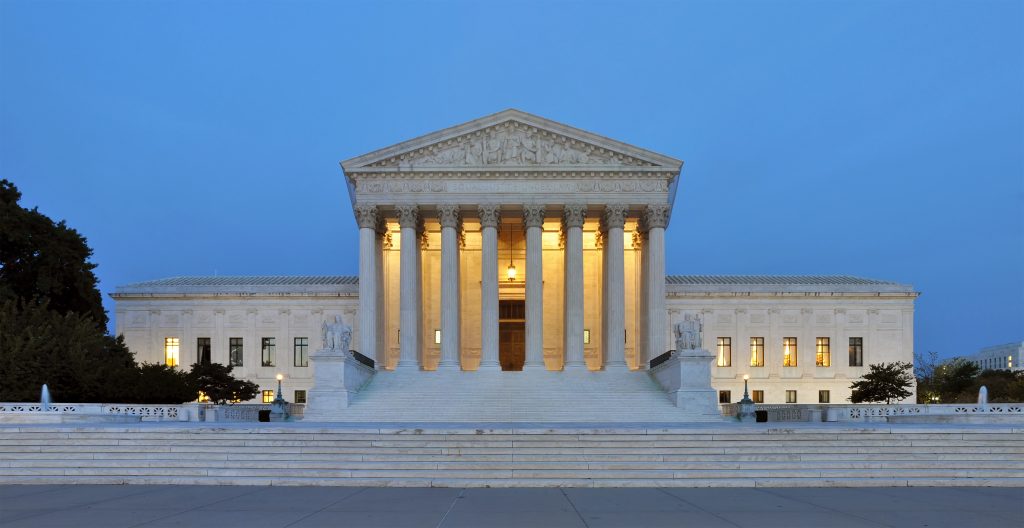Internet regulation, student loan debt forgiveness, Affirmative Action: Examining the biggest US Supreme Court cases in 2023
Boston Globe columnist and “On Point” guest host Kimberly Atkins Stohr joins Stephen Henderson on “Detroit Today.”

U.S. Supreme Court building
Ever since the U.S. Supreme Court’s ruling on Dobbs v. Jackson overturned Roe v. Wade last year and removed federal protections for a person to seek an abortion, many Americans have questioned the nation’s highest court in our political system.
This term, the Supreme Court has a chance to change how the internet works in the U.S.
Nohemi Gonzalez, a 23-year-old senior at Cal State Long Beach, was one of 130 people killed in a series of terrorist attacks in November 2015. The following year, the family of Gonzalez sued Google and other tech companies, accusing them of spreading radicalizing content.
While there is little evidence to suggest the terrorists in the Paris attack viewed any of the asserted radicalizing content in question, the lawsuit claims tech companies were responsible for the harm caused to the Gonzalez family as they helped radicalize users.
The case questions Section 230 and the fundamental structure of many social media platforms.
How will this case be interpreted, and what are the other important cases on the docket for the nine Supreme Court Justices?
Boston Globe columnist and On Point guest host Kimberly Atkins Stohr joins Stephen Henderson on Detroit Today to discuss what’s at stake on the U.S. Supreme Court’s docket.
Listen: How the dynamics of the U.S. Supreme Court have changed since leaked Dobbs decision
Guest
Kimberly Atkins Stohr is a senior opinion writer and columnist for the Boston Globe. She is also an MSNBC contributor, co-host of the Sisters-In-Law podcast and guest host on WBUR’s On Point. She says one case facing the U.S. Supreme Court relates to the root of how social media companies operate.
“What is Twitter? That is the question that the Supreme Court is considering. If the Supreme Court finds that Section 230 applies to them, that means they would be treated a little closer to what a telephone line is — that they are not responsible for the content that is posted,” says Stohr.
Trusted, accurate, up-to-date.
WDET strives to make our journalism accessible to everyone. As a public media institution, we maintain our journalistic integrity through independent support from readers like you. If you value WDET as your source of news, music and conversation, please make a gift today.
